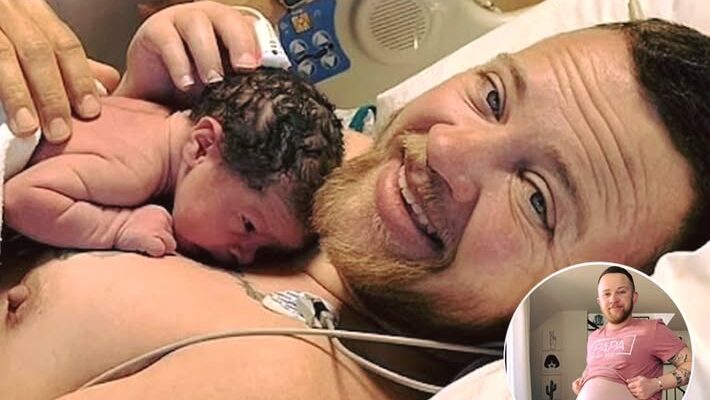In today’s world, respecting a person’s preferred name and pronouns is the fundamental way to honor their identity—whether they’re straight, gay, or transgender. Yet, many still struggle to move beyond outdated ideas about gender, often ignoring how crucial it is to acknowledge people as they truly are.
Bennett Kaspar-Williams, a 37-year-old transgender man from Los Angeles, welcomed his son Hudson via cesarean in October 2020, supported by his husband Malik. Though Bennett identified as male and used he/him pronouns at the time, he faced repeated misgendering from hospital nurses, who persistently referred to him as “mother” rather than father — despite medical forms clearly stating his gender identity, as reported by the Daily Mail.
Bennett’s journey to parenthood was deeply intentional. He began his gender transition in 2014 after realizing he was transgender in 2011. The couple decided to start a family, knowing Bennett would have to pause testosterone therapy to allow his ovaries to function again. Though he had undergone top surgery, he hadn’t had any lower-body surgeries, and after reflection, he felt comfortable carrying the child himself.
“We had only been trying a short while, so we expected the process to take longer than it did,” Bennett shared.
Pregnancy arrived just as the pandemic was beginning, replacing Bennett’s excitement with a growing anxiety for both his and his baby’s safety.
Yet, the most painful part of the experience wasn’t the pandemic — it was the repeated misgendering from medical staff. “The only thing that made me dysphoric about my pregnancy was the misgendering that happened to me when I was getting medical care for my pregnancy,” Bennett said.
Despite making his gender clear on paperwork, nurses continued to mislabel him. This fueled Bennett’s resolve to advocate for a broader understanding: childbirth is not inherently linked to gender.
Speaking with the New York Post, Bennett described how deeply embedded the connection between pregnancy and “motherhood” is in the American healthcare system — a system that often made it impossible for him to escape being misgendered.
“The business of pregnancy — and yes, I say business, because the entire institution of pregnancy care in America is centered around selling this concept of ‘motherhood’ — is so intertwined with gender that it was hard to escape being misgendered,” he explained.
Bennett pointed out the false equivalence society often makes between womanhood and motherhood. “No one can ever really know whether having children is possible until you try — being born with a uterus doesn’t make conceiving or carrying a certainty,” he said.
“That’s why it’s so important that we stop defining ‘womanhood’ in terms of ‘motherhood,’ because it’s a false equivalency that all women can become mothers, that all mothers carry their children, or that all people who carry children are mothers.”
Now, three years later, Bennett and Malik celebrate their son Hudson — a joyful reminder of their family’s love and resilience.
Bennett’s story sheds light on the challenges faced by transgender and non-binary parents, and underscores why it’s essential for society — and especially medical professionals — to respect and affirm people’s gender identities in every aspect of care.
